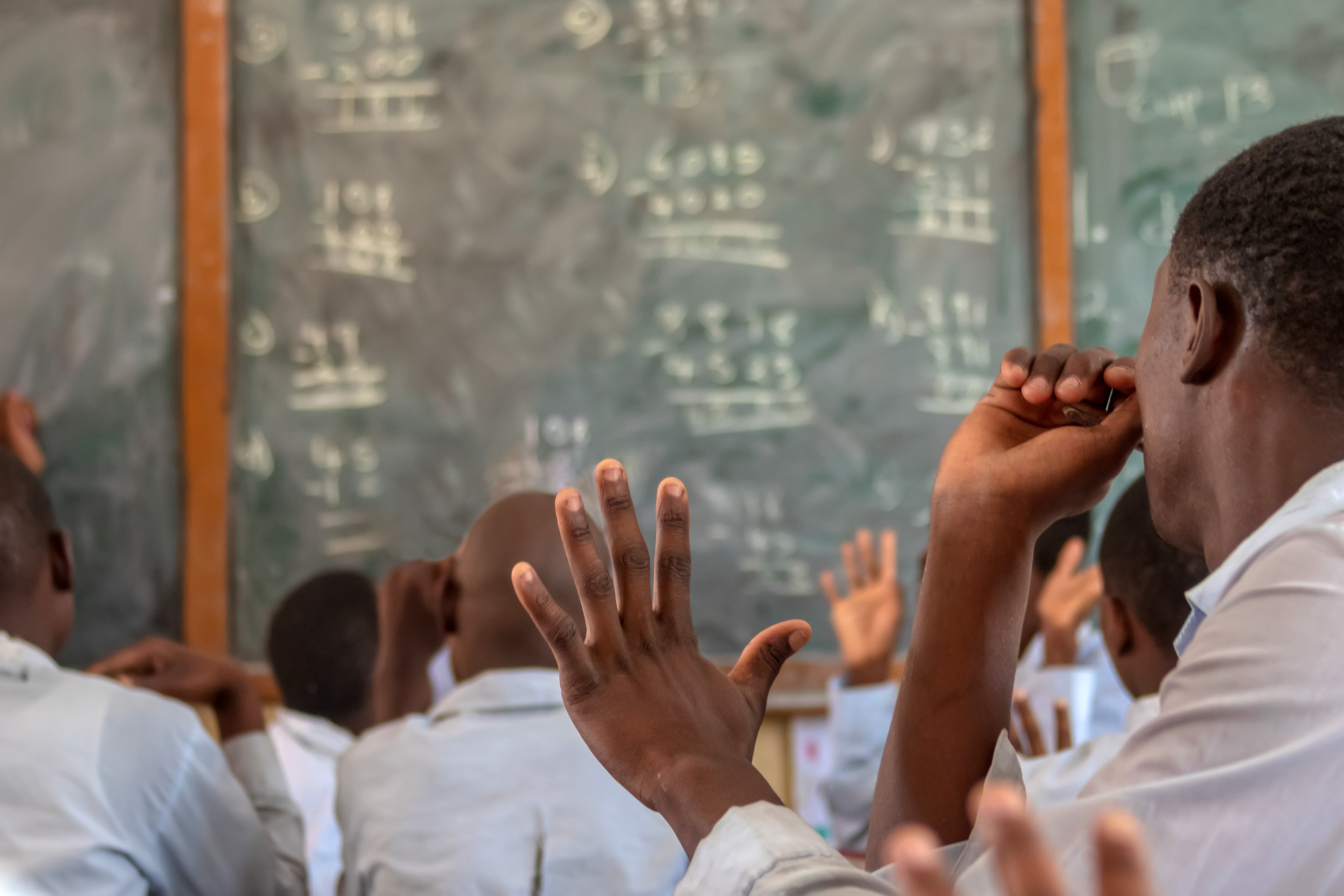Covid-19 has exacerbated the crisis of Africa’s out-of-school children and young people, with grave implications for the continent’s human and economic potential.
Even before the pandemic, there were an estimated 105m children of primary and secondary age out of school – 41% of the global total. Many more were in the classroom but learning little.
During the lockdowns of 2020 and 2021, African schools were fully or partially closed for an average of 34 weeks. There is no comprehensive data on how many children didn’t return to school. However, pandemic-related learning loss is a major concern. The World Bank and partners recently reported that 70% of 10-year-olds in low-and-middle-income countries are now unable to read or understand a simple written text, up from 57% pre-pandemic.
The human implications for a generation of young Africans are immense, as are the potential knock-on impacts to African economies, with McKinsey forecasting pandemic-related GDP losses of US$28bn a year by 2040.
Accelerated learning offers solutions
So far, so bleak. But what of the solutions? The good news is that African countries may also hold some of the keys to tackling this devastating trend. The continent’s experiences over the past decade with an approach known as accelerated learning show us there is a way to help even the most vulnerable children to catch up and get a foothold in formal education.
In countries as diverse as Ethiopia, Kenya, Liberia, Nigeria, Sierra Leone and South Sudan, accelerated learning has successfully compressed up to three years of primary education into one school year for children missing out because of extreme poverty, child labour, teen pregnancy, civil conflict, refugee migration and health crises.
These programmes have succeeded by stripping down the curriculum to focus on the essentials of literacy and numeracy and taking a strongly child-centred and interactive approach to learning, often led by specially trained young local facilitators. They have actively engaged communities in support of their children’s education.
Ethiopia’s Speed Schools are pioneers of the approach. Held all over the country, these special classes target children who have never been to school and those who enrolled but dropped out before gaining basic skills. Since the classes were started in 2011, they have graduated more than 250,000 9- to 14-year-olds, with 95% transitioning successfully into formal schooling. The model is so successful it has been adopted by the government with a dedicated Speed School Unit and regional equivalents.
Another example is Liberia’s Second Chance programme which has served children affected by the legacy of civil war and Ebola. It takes a similar approach, compressing the curriculum, training local classroom facilitators to enable smaller classes, and employing a philosophy of “joyful learning” where children take part in group activities with a strong emphasis on social-emotional learning. The programme has so far graduated 12,650 students, 90% transitioning to formal education. Parents credit it with helping to cement peace in their communities after decades of civil war.
Similar approaches have benefited children in Northern Nigeria’s Borno and Yobe states with children displaced by the conflict there, and in Kenya’s huge Kakuma and Dadaab refugee camps where accelerated learning programmes are supporting children’s recovery from the traumatic effects of conflict and displacement.
Lessons to be learned
There are so many lessons from these and other accelerated education initiatives across Africa that illustrate its potential – not only to help children who are out-of-school, but also those who are in school but have fallen behind due to Covid-related interruptions. Not least among these lessons is the imperative to align accelerated education closely with national education systems, including school calendars, exams, and curricula, so that students can transition easily into mainstream schooling.
Until now, evidence about the effectiveness of accelerated education has not been distilled and packaged specifically for education leaders to use. By providing an evidence-based guide, we seek to demonstrate that some of the answers to tackling the immense challenges of Covid catch-up are to be found close to home.
As Africa’s education leaders prepare for the United Nations Transforming Education Summit (16-19September) which sets out to tackle “the profound structural flaws of education systems worldwide”, they might consider how accelerated learning can help them, not just to support Covid-affected children to catch up, but to reimagine a new kind of education system that prepares students for the jobs of the future.
By using the best of accelerated education programmes, cutting learning time by two thirds and putting the Covid generation back in school and then into work, we calculate that African countries could recover $18bn a year, more than half their pandemic-related GDP losses.
By the mid-century, Africa will be home to a billion children and adolescents under 18, almost 40% of the worldwide total. The human and economic potential of these young people is staggering – if they are given the chance to learn.
Dr Randa Grob-Zakhary is founder and CEO of Education.org
Want to continue reading? Subscribe today.
You've read all your free articles for this month! Subscribe now to enjoy full access to our content.
Digital Monthly
£8.00 / month
Receive full unlimited access to our articles, opinions, podcasts and more.
Digital Yearly
£70.00 / year
Our best value offer - save £26 and gain access to all of our digital content for an entire year!
 Sign in with Google
Sign in with Google 



